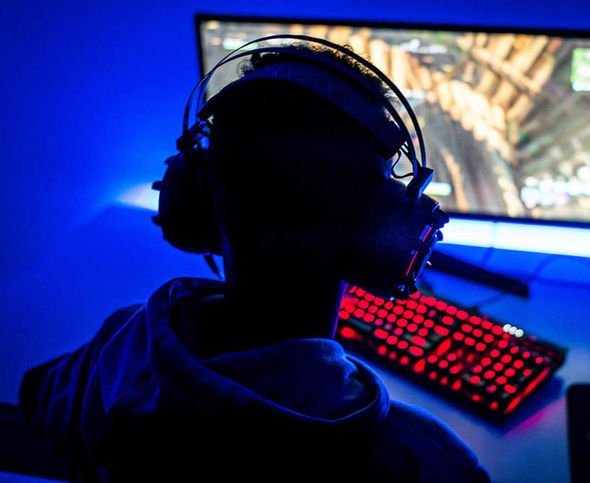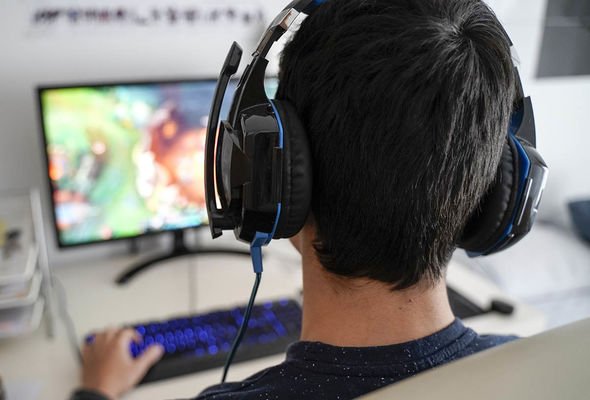Playing video games saved my sanity (Image: Tim Newark)
Many parents are extremely wary about video games for kids, with the fear that our eyes will go square if we play them too much or that the games will teach kids that violence is good and we’ll end up killing someone in later life. But, as of now, with the video gaming industry having been around for almost 50 years, scientists and educational organisations have run tests and found that gaming has had – and still is having – many positive effects on children.
Even though there are many more beneficial alternatives to playing video games, such as reading and homework, those games are not as bad as you might think.
One of the first reasons why gaming is not damaging to young minds is that it exercises the brain.
A major study, conducted at the Max Planck Institute for Human Development in Berlin, found that playing video games increases grey matter (basically, the size of your brain) and helps refine learned and hardwired skills.
Also, many newer games involve fast-paced strategies that demand high level skills and hand-eye coordination.
While playing video games, your brain is stimulated to its highest extent, so combat games especially improve a player’s attention span and concentration levels.
Mystery games that create an objective for the player require a lot of concentration and recollection over a long period of time, helping to improve the player’s short-term and long-term memory.
Video games provide stimulating exercises for your audio, tactile and visual senses – think of a round of Fortnite (a free-to-play, online, multiplayer video game) as a jog for your brain.
Fighting games that rely on fast reactions accelerate your response time, which can be useful in other activities like sport.

Up to six mates can be playing a game like Overwatch at the same time (Image: Getty)
So kids can tell their parents: “My brain won’t turn to slime or mush if I spend an extra five minutes on the Xbox.”
Society has always cast gaming as a hobby, only meant for fun, and it has always been thought to be the stark opposite of homework.
However, gaming and knowledge of video games open up a wide range of career paths.
Million dollar tech companies are looking for kids all around the world with expert knowledge on the gaming front to design the next hit everyone will be playing.

While playing video games, your brain is stimulated to its highest extent (Image: Getty)
From playing video games as kids, they will know what the market is for teenagers in 10 years’ time.
In addition, the new streaming platform Twitch has allowed many young people to monetise their competitive play.
Streaming has become extremely popular over the past two years and has become a proper full-time career.
This involves projecting your own gaming screen on a streaming site that is shared with potentially thousands of viewers watching your gaming skills.
For example, Ninja, one of the most popular fulltime streamers in the world, was earning a cool $500,000 (£376,000) every month from advertising revenue and subscribers in 2018-2019 streaming Fortnite.
With esports – that’s electronic sports – becoming more popular, more money is being invested in online tournaments and competitions.
The 2019 Fortnite World Cup had an £11.4million prize pool and the winner alone picked up more than £2.3million.

Many parents are extremely wary about video games for kids (Image: Getty)
Being extremely good at a video game can be life-changing.
Esports is the future and is a career kids could be looking into.
In the past, expensive PCs were the first choice for up-and-coming gamers, but now family-friendly consoles are catching up in performance and graphics, such as the new Xbox Series X and PlayStation 5 launched this month.
This is a real game-changer for console-players who want to compete with the very best.
If you want to become an esport spectator, you can sign up to streaming sites such as Twitch or YouTube where you can join the millions of game enthusiasts from around the world.
Some of the most successful games are British made, including the Grand Theft Auto and Tomb Raider series.
It’s estimated that games generate £2.2billion for the UK economy, with more than 1,740 jobs added to the sector this year.
There’s even a Bafta award for the best games, and some people claim that it is more popular and profitable than any other form of entertainment.
In the midst of the pandemic I found it incredibly hard not being able to go outside to meet friends or even to watch a film at the cinema.
I would say gaming on the Xbox with my friends saved my sanity during the spring lockdown.
I bought a mic just before COVID-19 first struck and it allowed me to chat – almost as if I were face to face – with my friends.
I thought I wasn’t going to be able to talk to them in months and would lose relationships, but with live chats it kept friendships intact and even made them stronger.
Up to six mates can be playing a game like Overwatch at the same time, with up to eight of them chatting about it online.

(Image: Getty)
Each friend has a gamer profile and it can be very funny seeing them make mistakes.
You can learn gaming tips from each other and excel as a team, advancing up the ranks.
At one time, my mate and I were in the top 200 in Europe and now my school is taking part in esport leagues with others.
Communication is key to success in video games, so improving at gaming is also improving your social skills.
Modern-day video gamers are so different to the old stereotype of a nerd who sits in a dark room all day and has no friends.
It’s a social platform that young people should be encouraged to be a part of. So, parents, what do you think about video games now?
• Max Newark attends King Edward’s School, Bath.




